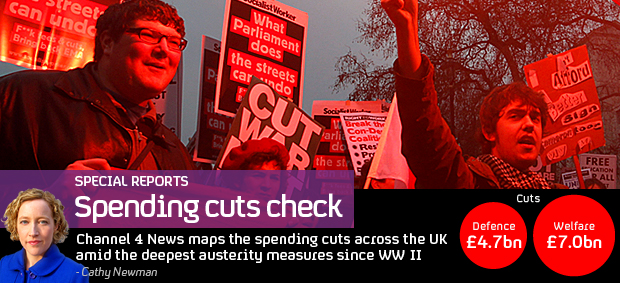Watchdog warns of ‘substantial’ university funding gap
Underestimating the number of universities charging the maximum £9,000 per year tuition fees could result in a substantial funding shortfall, a Government spending watchdog has warned.

A Public Accounts Select Committee report has warned of “a substantial funding gap” for English universities, which could lead to cuts in higher education or require more taxpayers’ cash.
The report suggests that the Government should even look at reducing the number of university places.
The shortfall is a result of the Government’s pledge to pay fees up front, with students repaying the cash on completion of their education. Since more universities than anticipated are charging the maximum amount of fees, the gap will be significantly more than expected.
The Government committee says it is unclear whether the fees, treble the current maximum, will deter students from applying to study for degrees.
“All the indications are that significantly more institutions will charge significantly higher fees than was anticipated by the Department for Business, Innovation and Skills,” the report says.
“It is likely that a significant funding gap of hundreds of millions of pounds for the taxpayer will occur. Unless further resources are secured by the Department, this could result in further cuts being made to the Higher Education budget.”
Read more in Cathy Newman's FactCheck: university fees set to run riot
Universities at risk of failure
The Committee has also sought assurances from the Government that there will be closer monitoring of institutions which could fail if their income falls should fewer people go to university.
The report says: “It must also strengthen its monitoring arrangements so that it has early warning of any institutions that are struggling to manage these or other risks to their financial health.
Currently it can be three years before the body reveals if an institution is deemed to be at “higher risk” but this does not even exclusively mean it faces financial difficulty.
The report also points out that the Higher Education Funding Council for England which currently carries out this role may struggle to do so in future due to budget cuts: “Like other public bodies, the Funding Council is under pressure to reduce its administrative costs. However, as the financial risks to institutions increase, there may be greater need for the Funding Council’s involvement.”
The Committee has asked the Government to report back next Spring with details of what it is doing to ensure this happens.
Use the Channel 4 News interactive map to see who is charging what in university tuition fees. Click here for more.
‘New regulation required’
The committee chairman, Labour MP Margaret Hodge, also said the universities’ regulatory body, the Higher Education Funding Council for England, would need beefed-up powers once higher tuition fees are introduced and its role in awarding cash to institutions was cut back.
She said: “The Higher Education Funding Council for England will no longer be able to rely upon its funding role to influence the sector and a new system of regulation will be required.
“At present, more universities intend to charge higher fees than the Department for Business, Education and Skills had expected.
“If the universities’ plans to widen participation are approved by the Office for Fair Access, this will leave a substantial funding gap which will either require further cuts in higher education or further resources from the Treasury.”
Ms Hodge called for ministers to give potential students more information on paying for higher education at various universities so they can choose the course and destination which best suits them.
“Given that students will be required to spend more money on their own higher education, they will have to be able to make an informed choice about value for money offered by different institutions,” she said.
The report also considers whether higher fees could discourage potential students from applying to university, although it notes the impact of this is as yet unclear.
-
Latest news
-
Boy with profound learning disabilities reaches out of court settlement after abuse in residential school7m

-
India election: Modi rivals hit by string of raids and arrests7m

-
Can UK’s abandoned mines be used to build a greener future?5m

-
Sycamore Gap: Man pleads not guilty to felling iconic tree2m

-
‘Child poverty has not fallen since Tories came in’, says Gordon Brown5m

-






